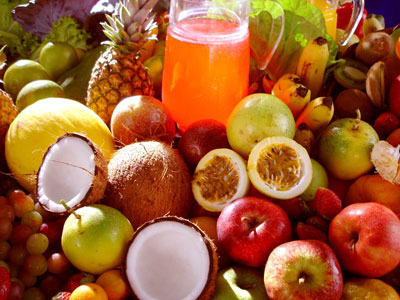Psychology overeating
 Most people are sure that their appetite is always under their control, they just have to want it, and the hated kilograms will begin to melt under the pressure of inexorable desire. But in most cases it is not. If only a lot of discipline would be enough for losing weight, any normal person could create a proper diet for himself, and not spend money on gyms, nutritionists and miracle weight control programs. Continue reading
Most people are sure that their appetite is always under their control, they just have to want it, and the hated kilograms will begin to melt under the pressure of inexorable desire. But in most cases it is not. If only a lot of discipline would be enough for losing weight, any normal person could create a proper diet for himself, and not spend money on gyms, nutritionists and miracle weight control programs. Continue reading
7 myths about food
 Over the past 30–40 years, not only has the reality (mobile phones, the Internet) changed, but, above all, the environment has changed dramatically. Real bread, butter, milk, vegetables and meat disappeared from the tables. People seem to be in the middle of a great experiment. What else is the human body unable to resist, neutralize and digest? Maybe some other food supplement, maybe genetically modified foods. And this is evident from the growing prevalence of diseases that only the old people were sick with. Today, diseases affect everyone, regardless of age. Continue reading
Over the past 30–40 years, not only has the reality (mobile phones, the Internet) changed, but, above all, the environment has changed dramatically. Real bread, butter, milk, vegetables and meat disappeared from the tables. People seem to be in the middle of a great experiment. What else is the human body unable to resist, neutralize and digest? Maybe some other food supplement, maybe genetically modified foods. And this is evident from the growing prevalence of diseases that only the old people were sick with. Today, diseases affect everyone, regardless of age. Continue reading
How to avoid overeating during the holidays?
 According to our traditions, the New Year’s table should be filled with various dishes. For this reason, many people are extremely difficult to withstand such a load on the stomach. But do not worry. There is a way out of any situation. Consider a few effective ways to help you defeat gluttony and give you the opportunity to have fun in the New Year and Christmas holidays. Continue reading
According to our traditions, the New Year’s table should be filled with various dishes. For this reason, many people are extremely difficult to withstand such a load on the stomach. But do not worry. There is a way out of any situation. Consider a few effective ways to help you defeat gluttony and give you the opportunity to have fun in the New Year and Christmas holidays. Continue reading
4 simple steps towards healthy eating
 When we are more and more aware of the impact that a healthy diet can have on our lives, we begin to think about the possibility of changing our current eating habits. Rapid radical changes can only give temporary results. It is much better to start small and gradually increase the changes. Learn 4 ways to improve your eating habits! Here are some ideas to get you started. Continue reading
When we are more and more aware of the impact that a healthy diet can have on our lives, we begin to think about the possibility of changing our current eating habits. Rapid radical changes can only give temporary results. It is much better to start small and gradually increase the changes. Learn 4 ways to improve your eating habits! Here are some ideas to get you started. Continue reading
Choose organically grown foods.
 If your daily diet consists mainly of artificially grown foods, many pesticides, herbicides, and other chemicals are deposited in the fatty tissues of your body. Why take the risk if you know the negative effects of the consumption of such products on health?
If your daily diet consists mainly of artificially grown foods, many pesticides, herbicides, and other chemicals are deposited in the fatty tissues of your body. Why take the risk if you know the negative effects of the consumption of such products on health?
The most stuffed with nitrates are berries, fruits and vegetables: strawberries, raspberries, cherries, blueberries, cherries, nectarines, peaches, grapes, pears, apples, bell pepper, spinach, celery, cabbage and potatoes. Continue reading





